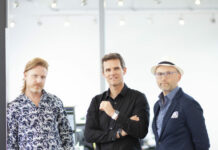AI is poised to significantly transform the cosmetics industry, introducing innovations that cater to personalization, sustainability, and enhanced consumer experiences. One of the most noticeable changes is the rise of personalized skincare solutions. Using AI-powered devices and apps, consumers can now receive product recommendations that are specifically tailored to their individual skin type, concerns, and lifestyle. This shift toward personalization helps users move away from generic product choices, offering customized skincare regimes that are much more effective. AI achieves this by analyzing data such as skin texture, hydration levels, and environmental conditions to suggest the best possible solutions for each person.
1. Personalized Skincare Solutions
AI is transforming the cosmetics industry by offering highly personalized skincare solutions. Through AI-powered apps and devices, consumers can receive tailored recommendations based on their skin type, concerns, and environmental factors. AI analyzes individual skin data to suggest products that are most suitable for each user, moving away from the one-size-fits-all approach to skincare.
2. Virtual Try-On Technology
AI enables virtual try-on experiences for cosmetics, allowing consumers to test makeup products digitally before purchasing. Using augmented reality (AR) and AI algorithms, these tools let users apply virtual lipstick, foundation, eyeshadow, and other makeup products in real-time, helping them visualize how products will look on their skin tone and features without needing to visit a physical store.
3. AI-Powered Skin Diagnostics
AI plays a crucial role in advanced skin diagnostics, enabling precise analysis of skin conditions. AI tools scan and evaluate skin health, identifying issues such as acne, wrinkles, pigmentation, and dryness. These diagnostic tools provide consumers with detailed insights into their skin’s needs, guiding them toward the best skincare treatments or products.
4. Product Development and Formulation
AI is being used by cosmetic companies to streamline product development and formulation. AI models can analyze vast amounts of data on ingredients, consumer preferences, and market trends to help develop new and innovative beauty products. This reduces the time and cost involved in product testing, while also ensuring that the products meet consumer demands for efficacy and safety.
5. Sustainable and Eco-Friendly Innovations
AI supports the shift toward sustainability in the cosmetics industry by optimizing ingredient sourcing and reducing waste in production. AI can help develop eco-friendly formulations by predicting the impact of various ingredients on the environment and human health. This enables cosmetic companies to create sustainable products that meet consumer demand for green beauty while minimizing their environmental footprint.
6. AI-Powered Beauty Assistants
AI-powered virtual beauty assistants are becoming more common in online shopping experiences. These AI chatbots or virtual advisors guide consumers in selecting the right beauty products by asking questions about their skin type, preferences, and concerns. This creates a more interactive and personalized shopping experience, enhancing customer satisfaction and increasing conversion rates for beauty brands.
7. Predictive Analytics for Trends
AI-driven predictive analytics tools are revolutionizing how cosmetics companies forecast trends. By analyzing consumer behavior, social media trends, and historical sales data, AI can predict upcoming beauty trends and help brands stay ahead of the competition. This allows companies to adjust their marketing strategies, product launches, and inventory to align with evolving consumer preferences.
8. AI in Manufacturing and Quality Control
AI is enhancing manufacturing processes and quality control in the cosmetics industry. Machine learning algorithms monitor production lines in real-time, ensuring that products are consistently produced at the highest quality. AI also helps detect defects or inconsistencies during the manufacturing process, reducing waste and improving overall efficiency.
9. Hyper-Personalized Marketing
AI is transforming marketing strategies in the cosmetics industry through hyper-personalized advertising. By analyzing customer data, browsing history, and purchasing patterns, AI systems can deliver targeted advertisements and personalized product recommendations to individual consumers. This increases engagement, boosts brand loyalty, and improves the overall shopping experience.
10. AI-Driven Ingredient Transparency
With increasing demand for transparency in beauty products, AI helps brands provide detailed information about product ingredients. AI-powered apps allow consumers to scan products and instantly access information about the ingredients used, their benefits, and any potential allergens. This ensures that consumers can make informed decisions based on their specific skincare needs and concerns.
The integration of virtual try-on technology is another major innovation driven by AI in the cosmetics industry. By leveraging augmented reality (AR) combined with AI algorithms, consumers can try on makeup virtually. This technology allows users to see how different products like lipsticks, eyeshadows, and foundations will look on their skin tone and features without needing to physically apply them. It enhances the shopping experience, especially in e-commerce, as customers can now make more informed decisions before buying cosmetics online.
AI is also advancing skin diagnostics by offering more precise and in-depth analyses of skin conditions. AI-powered tools can evaluate key aspects of skin health, such as detecting wrinkles, acne, pigmentation, or uneven skin tones. These tools provide users with personalized recommendations based on their specific skin needs, directing them to suitable treatments or products that can address their concerns. This level of insight allows consumers to take proactive steps toward better skincare management, ensuring that they can achieve healthier, clearer skin more effectively.
In terms of product innovation, AI is streamlining product development and formulation processes in the cosmetics sector. By analyzing vast datasets of ingredients, consumer preferences, and market trends, AI can predict the effectiveness of certain formulations before they are physically created. This helps companies reduce the time and cost associated with product testing, while also ensuring that new products are safe and effective. With AI’s ability to analyze large volumes of data quickly, cosmetic brands can introduce cutting-edge products that cater to current consumer needs and preferences.
Sustainability is another area where AI is driving change. Consumers are becoming increasingly aware of the environmental impact of their beauty products, and AI is enabling brands to develop sustainable and eco-friendly formulations. AI-powered tools can help companies identify alternative, biodegradable ingredients or optimize production processes to reduce waste and energy consumption. These technologies also assist in sourcing raw materials ethically, ensuring that beauty products not only enhance personal well-being but also minimize harm to the environment.
In e-commerce, AI-powered beauty assistants are revolutionizing the way consumers shop for cosmetics. These virtual beauty advisors use AI to provide personalized product recommendations by asking users about their skin type, concerns, and preferences. They guide customers through the buying process, offering real-time support and recommendations, which helps improve the overall shopping experience. For beauty brands, this level of personalization also leads to increased customer satisfaction and higher conversion rates.
Additionally, AI’s predictive analytics capabilities are helping cosmetic companies stay ahead of industry trends. By analyzing consumer behavior, social media trends, and historical data, AI can forecast future beauty trends with high accuracy. This allows brands to better plan their product launches, marketing strategies, and inventory, ensuring they remain competitive and aligned with the rapidly changing preferences of consumers.
On the production side, AI is also transforming manufacturing and quality control processes in the cosmetics industry. AI systems monitor production lines in real time, detecting any inconsistencies or defects in the products being made. This ensures that every product meets the highest quality standards before reaching the consumer. Additionally, AI-powered tools help optimize the manufacturing process, reducing waste and improving overall production efficiency.
Marketing strategies in the beauty industry are also being reshaped by AI, particularly through hyper-personalized marketing. By analyzing consumer data such as browsing behavior, previous purchases, and even social media activity, AI can deliver targeted advertising campaigns that resonate more with individual customers. This type of marketing increases engagement, strengthens brand loyalty, and ultimately boosts sales as consumers are more likely to respond positively to personalized content and product recommendations.
Finally, AI is playing a critical role in promoting ingredient transparency. With more consumers demanding to know what’s in their beauty products, AI tools and apps now allow users to scan products and instantly access detailed information about the ingredients. This empowers consumers to make informed decisions, particularly if they have allergies or are looking for products that align with their health and ethical standards.
In conclusion, AI is driving significant changes in the cosmetics industry across multiple dimensions. From personalized skincare and virtual try-on technologies to sustainable innovations and ingredient transparency, AI is enhancing consumer experiences, streamlining product development, and promoting eco-friendly practices. As AI continues to evolve, its influence on the beauty industry will only expand, leading to more tailored, efficient, and environmentally conscious solutions for consumers worldwide.

















